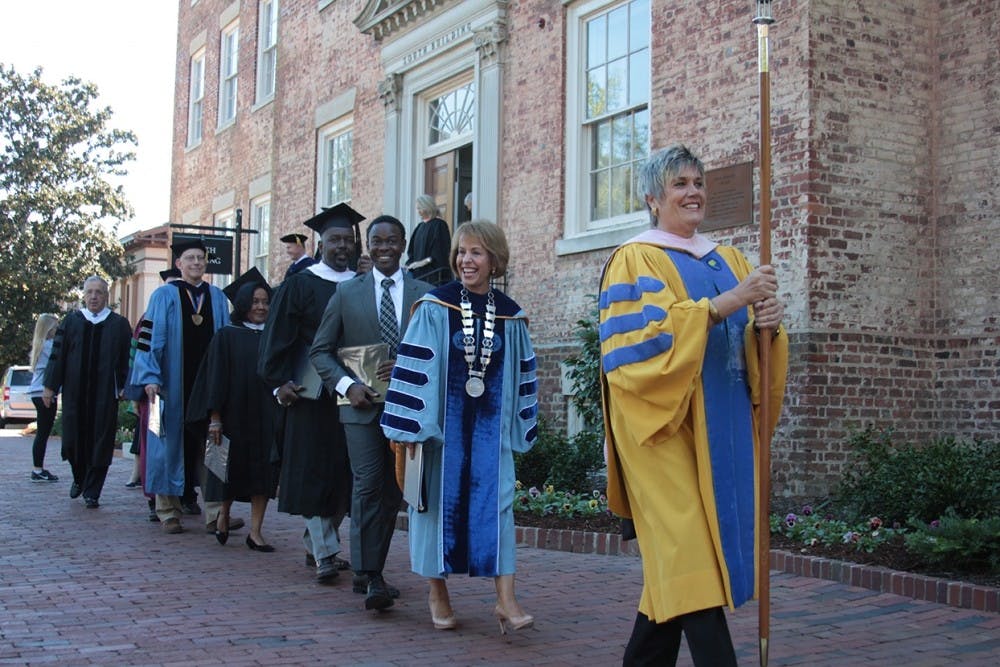During his famous 1993 Bicentennial Address on University Day, Charles Kuralt shared what makes UNC worth celebrating.
“Our love for this place is based on the fact that it is, as it was meant to be, the University of the people.”
On Friday, UNC will celebrate the 225th anniversary of the laying of Old East's cornerstone, the first building constructed on campus. The University began recognizing this day in 1877 to celebrate this historical event and the ideals the nation’s first public university has been committed to since its birth: lux et libertas, or light and liberty.
Throughout the years, standard University Day events have included the faculty procession, the presentation of honorary degrees and distinguished alumni awards, and speeches by distinguished faculty and guests, including Presidents John F. Kennedy in 1961 and Bill Clinton in 1993.
This year, in addition to the traditional festivities, the Order of the Bell Tower is sponsoring free “Waffles at Wilson” from 7:30 a.m. to 10 a.m., and there will be cookies and music in the Pit from 11:30 a.m. to 1 p.m.
Over the past 141 years, University Day has been marked by a variety of different events. Students attending UNC in 1987 were invited to celebrate the commemorative event by attending a free “ice cream social” outside of Memorial Hall after the traditional ceremonies and a Clef Hangers concert by the Old Well in the evening. In 1906, students participated in the procession and sang “college songs” together in Memorial Hall, accompanied by the student orchestra.
Students have also used University Day as a way to make their voices heard by the administration. In 1977, approximately 100 members of the student body marched behind the faculty procession in a protest led by the Black Student Movement. They demanded the University increase its target goals for diverse enrollment. Students protested again in 1992, voicing their concerns over the lack of a freestanding Black Cultural Center.
Although University Day has incorporated small changes over time, such as a shortened procession path or the addition of free food sponsored by independent organizations, the general focus and significance of the celebration have stayed constant.
“I haven’t perceived it as changing over the years," said John Sweeney, a professor in the UNC School of Media and Journalism. "I haven’t perceived it as suddenly, ‘it’s going to be a bigger thing!’”




